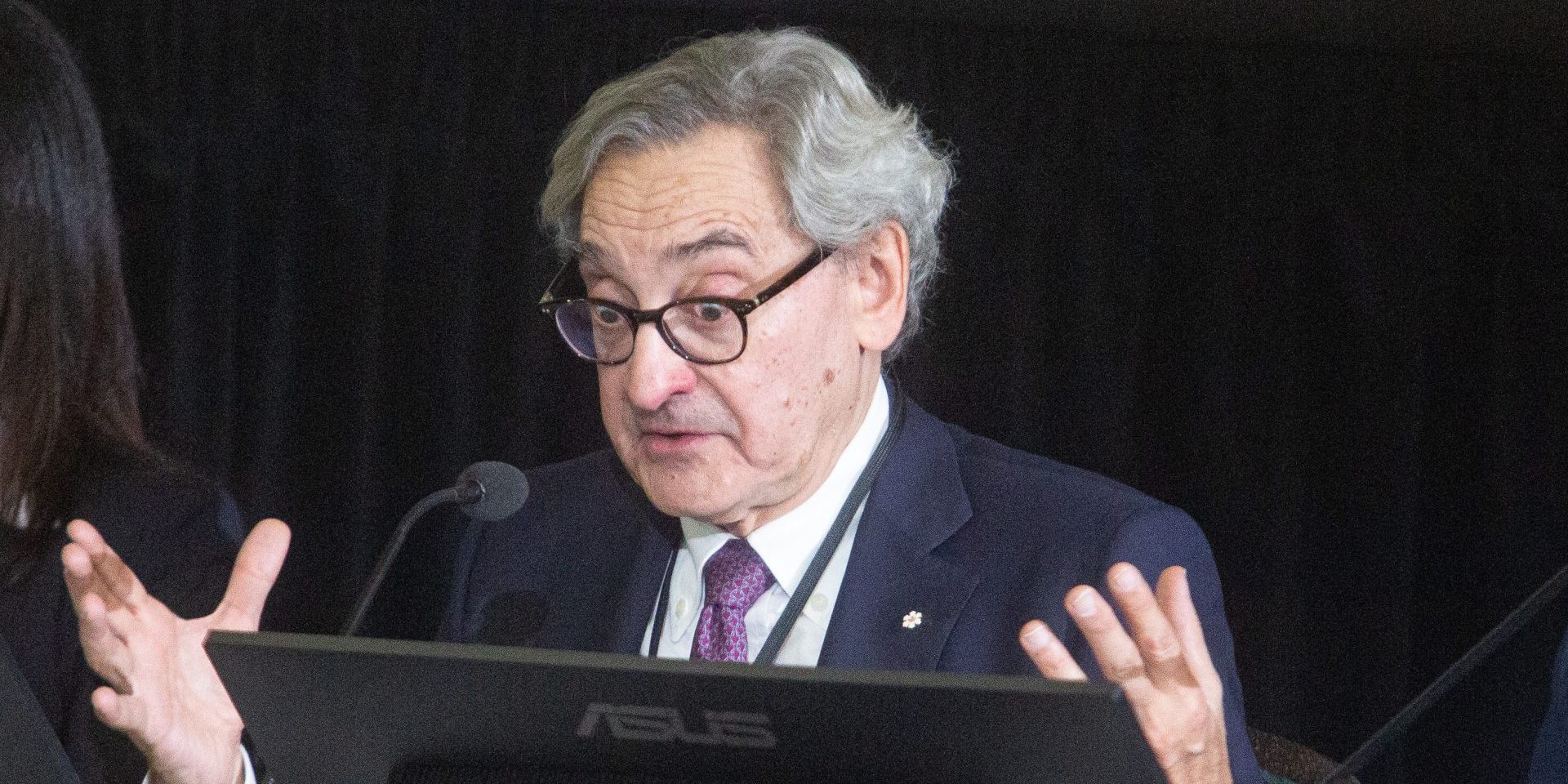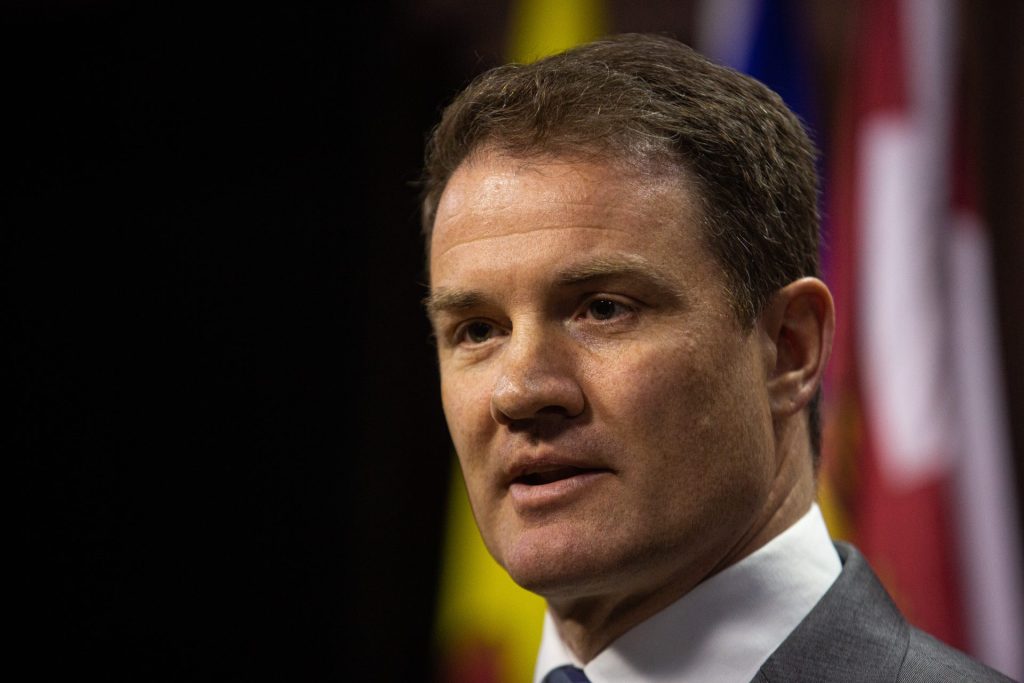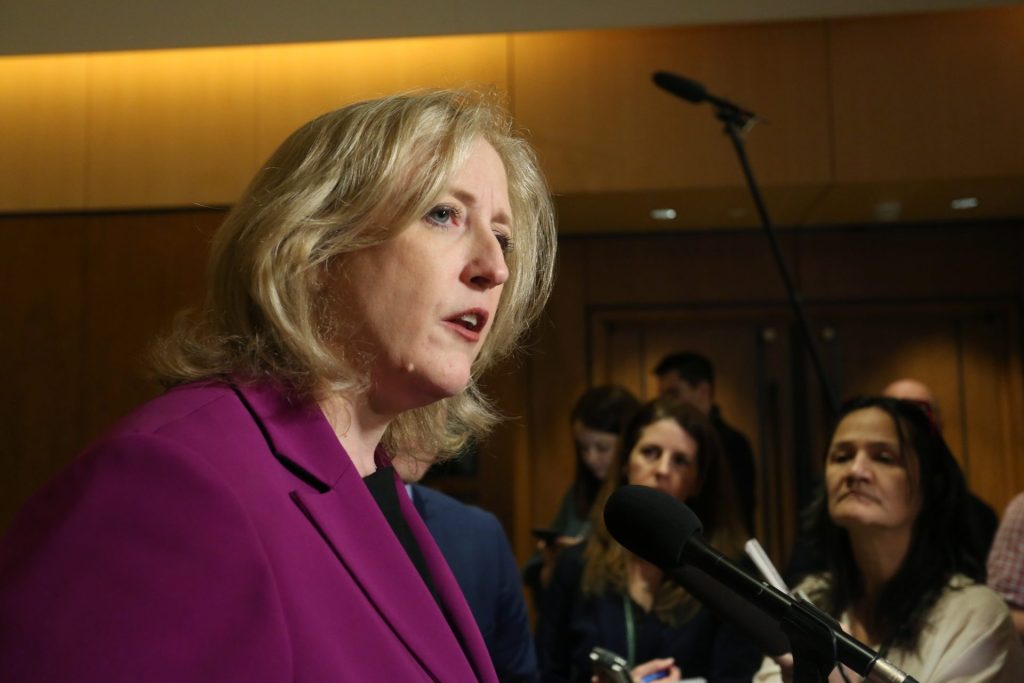Top finance official defends Infrastructure Bank from accusations of ‘cosiness’ with private consultants

The finance department’s top civil servant pushed back on May 16 against assertions from opposition MPs that the Canada Infrastructure Bank’s mandate was shaped by the Liberal government’s “cosiness” with consulting firm McKinsey & Company.
Appearing before the House Transport, Infrastructure and Communities Committee, Deputy Finance Minister Michael Sabia responded to questions about the government’s relationship with the consulting firm McKinsey & Company following the 2015 election, and whether McKinsey’s “infiltration” of a key advisory council in 2016 drove a fundamental shift in the mandate of the nascent infrastructure bank away from an election promise of a truly public infrastructure bank and towards a privatization-friendly model.
Sabia, who has been deputy minister since December 2020, testified as part of the committee’s ongoing hearings into the role of McKinsey & Company in the creation and early years of the Canada Infrastructure Bank (CIB). The landmark institution was established with the promise of using $35-billion worth of public money to unlock four or five times as much private capital to finance infrastructure projects. But it has been criticized by the political right for failing to meet these targets, and by parties on the left as a vehicle for privatizing public assets.
Sabia—a high-profile hire who has worked in business, the civil service, and academia—has played several roles in the story of the CIB. In 2016, he was a volunteer member of the economic advisory council that recommended CIB’s creation to then-finance minister Bill Morneau. Next, he was CEO of a Quebec pension fund when it partnered with the CIB on its first major project in 2018. Finally, after the CIB struggled to get off the ground in its first three years, Morneau turned to Sabia in April 2020 to take over as its new chair. Sabia held that position for a few months before being tapped to take over as deputy minister of finance in December 2020.
Opposition MPs zeroed in on the fact that then-McKinsey managing partner Dominic Barton chaired the advisory council that recommended the creation of the CIB, and that other McKinsey consultants provided free administrative and research support to the council—acting as what Sabia described as “a secretariat.”

Conservative MP Leslyn Lewis (Haldimand—Norfolk, Ont.) told Sabia that “the cosiness of the [CIB] with McKinsey,” before and after its formation, “creates the impression that there is an actual or perceived conflict.” Bloc Québécois MP Xavier Barsalou-Duval (Pierre-Boucher—Les Patriotes—Verchères, Que.) suggested a connection between McKinsey’s significant pro-bono support for the advisory council in 2016, and the millions in contracts the firm has since secured from Ottawa.
Sabia rejected both these suggestions, and seemed to grow exasperated at times with Lewis’ suggestions of personal or professional conflicts of interest.
“There is not even the potential for a conflict of interest there. I simply do not understand the question,” said Sabia, when asked why he consulted with Barton after taking over as chair of the CIB. “You always reach outside, you always want to talk to other people. You always want to gather the greatest number of ideas and perspectives that you can, because the world is a complex place.”
Consultancies ‘notorious’ for providing advice that ‘undermines’ public services, says former mayor
NDP MP Taylor Bachrach (Skeena—Bulkley Valley, B.C.) said the witness testimony painted a picture of the CIB as “the nexus” of a “tangled web,” in which relatively few players hold multiple roles at different times.

Bachrach also looked to another witness, CUPE senior researcher Diane Therrien, to present a bigger-picture critique of the infrastructure bank, reflecting the left’s deep mistrust about the CIB’s mandate to attract private sector participation in public sector projects.
Therrien, a former mayor of Peterborough, Ont., told the committee on May 16 that “the infiltration of government by multinational consulting firms has been a rising problem since at least the 1980s,” and that McKinsey and similar firms are “notorious for providing advice to governments that undermines the work of public services and seeks to continue down the neoliberal path of privatizing those public services.”
She described receiving cookie-cutter presentations from various consulting firms in her time on Peterborough city council where the final recommendation almost always involved the privatization of public services.
Therrien said CUPE welcomed the Liberals’ 2015 election campaign promise to create a public bank with a mandate to provide low-cost loans to help municipal and other local governments deal with their “massive infrastructure deficit,” but the union was concerned about McKinsey’s post-election involvement with Morneau’s economic advisory council.

“Those fears were realized when they managed to convince the federal government to divert the bank from its original proposed purpose,” said Therrien. “After McKinsey and their affiliate BlackRock’s involvement in the development of the CIB, there was a major shift in mandate.”
She said the aim shifted to “leveraging private capital” to finance infrastructure projects, which would “supposedly generate revenue.”
Therrien called on the government—which is conducting the CIB’s five-year review—to change the institution’s core mandate. She said Ottawa should remove the “pie-in-the-sky notion” of attracting private capital for public infrastructure needs that, in her view, would never be directly profitable. Instead, she called on the government to re-orient the CIB towards “a truly public model” that would provide direct, low-cost financing to local governments.
Sabia responded by saying that Ottawa has announced $60-billion worth of traditional infrastructure funding, but that additional private financing is needed, because “there’s no government” that can afford the full amount required to close the infrastructure gap without exceeding “a reasonable budgetary expectation.”
He made the case for the CIB as an institution with the purpose to identify and support infrastructure projects where initial public dollars can be used to attract additional private investment.
In his 2023 memoir, Where to From Here: A Path to Canadian Prosperity, former finance minister Bill Morneau wrote that he came into office with the belief that creating a pathway for Canada’s large pension funds to invest in Canadian infrastructure would be “a huge win-win.”
Despite Therrien’s suggestion that it was consulting firms that drove a pro-privatization agenda behind the scenes, Morneau’s memoir suggests that he needed no convincing. He writes about trying to convince skeptical Liberal caucus members of the benefits of private investment in public projects, and generating revenue by imposing user fees or selling airports and highways.
Sabia and Raitt say CIB has picked up the pace after ‘slow start’
The criticism from both conservatives and progressives has been that the CIB has failed to attract the kind of private investment that was initially promised. Sabia acknowledged that the CIB got off to “a slow start” in its first three years. He told the committee that Morneau asked him to take over to help “accelerate processes and turn the corner.” The infrastructure bank has ramped up its level of activity under its current leadership, he added, and begun to “hit its stride.”

Lisa Raitt, a former Conservative minister of transport, told the committee on May 16 she agreed with Sabia there has been “a fundamental change” in the CIB in the past three years.
Raitt, who said she works with the CIB in her current role as vice-chair of global investment banking at CIBC, added that she sees a need for governments to partner with private investors to address the infrastructure gap. She said she is “agnostic” as to how that should be accomplished, but that her concern is that the current government’s approach—scrapping the Harper government’s equivalent Crown corporation and launching the CIB—wasted valuable time.
Liberal MPs on the committee highlighted projects the CIB has financed. Another witness, Brampton, Ont. Mayor Patrick Brown, was effusive in his praise of the CIB for providing a $400-million loan to purchase 450 electric buses to replace the city’s existing diesel-powered fleet.
Brown, a former Conservative MP, said the purchase of the new fleet would not have been possible without the loan.
The Hill Times






 LICENSING
LICENSING PODCAST
PODCAST ALERTS
ALERTS













